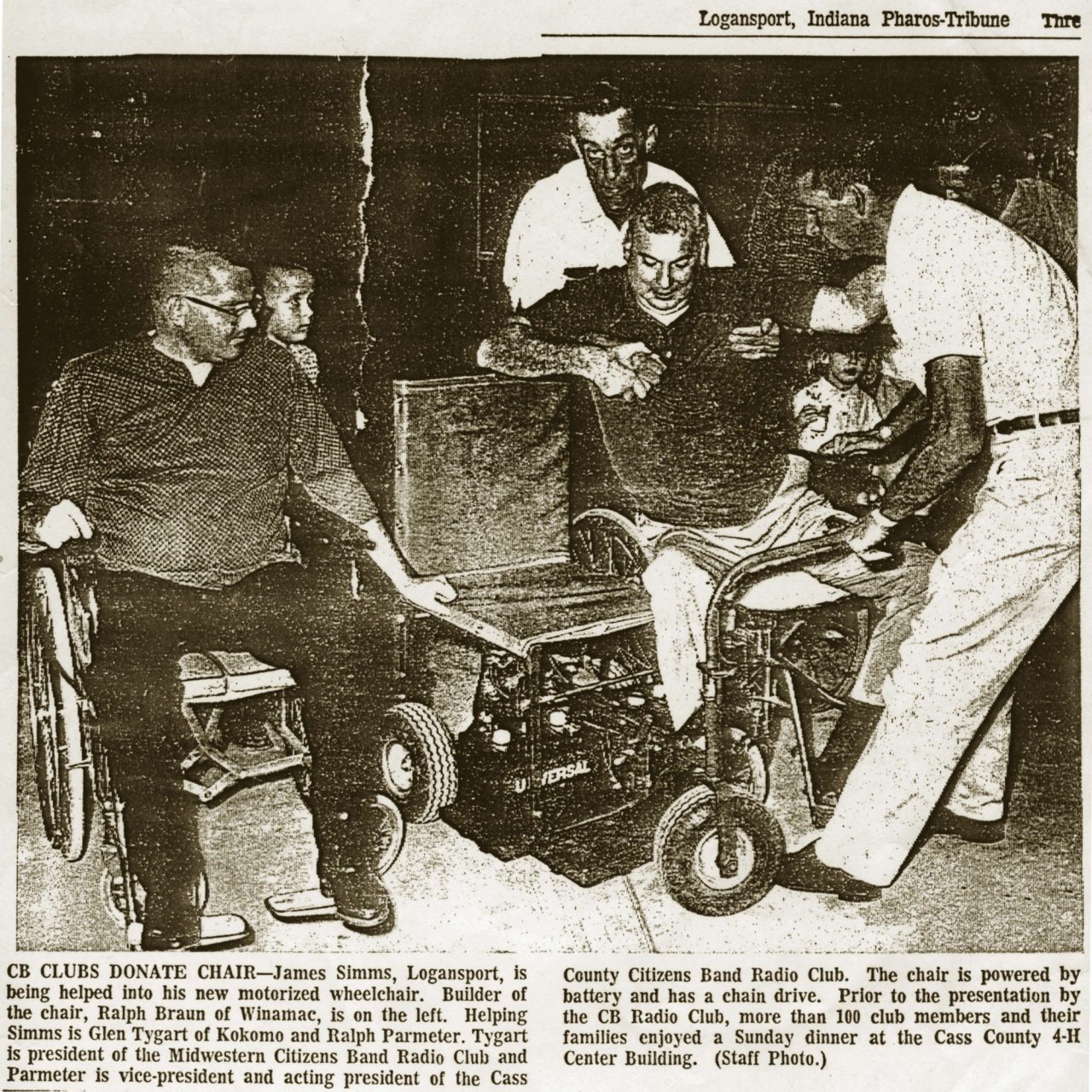Rise Above Excerpt: Learning Important Lessons

In Chapter Seven of Ralph Braun's upcoming book "Rise Above," we learn how he transitioned from building scooters for himself to providing mobility for others. As is often the case with all worthwhile things in life, Ralph learned a few hard lessons along the way.
In this excerpt, Ralph relates the story of his very first customer. Though he had high hopes at the time, he had no way of knowing it would be the start of a global enterprise that would provide mobility to hundreds of thousands of people:
~ From Rise Above, Chapter Seven: Changing Times ~
. . . each time I showed up riding my scooter people would come over and start asking questions. This was particularly true the day I went to a social function at a church near Logansport, where I got my very first customer.
A boy at this church had the Duchenne form of Muscular Dystrophy, and he and his family were really struggling to try to help him have a normal life. After seeing me on my scooter the family began talking among themselves about how nice it would be to have one for their son. A woman elder at the church overheard their conversation and privately asked me how much it would cost for them to buy one from me. Remembering how much it cost me to build the one I was riding at that time, I told her I could do it for $300 -- $150 for parts, and $150 for labor. That's when we made the deal. She said the church would take up a collection and pay me on delivery.
This is when I learned one very big lesson about business: if you don't price your product or service right, you won't be in business for very long. It's not greed or the desire to take advantage of people; it's strictly a fact of business. I learned this rather obvious piece of knowledge from my usual "business school" teachers, Ralph Rocky and Paul Gillette. When I went back to them to purchase the parts to make this first customer's chair they told me the actual price was going to be higher than when they'd sold to me the previous times. They explained that they'd sold the parts to me at a reduced price because they wanted to do me a favor, but if I was going to start turning around and using those parts to make a business, well, that was a different story. As a result, while it took me two weeks to make this first customer's scooter, I didn't make a penny. But what I did have was a product - I called it the "Tri-Wheeler" - experience, and the satisfaction of helping someone.
I can easily recall delivering the Tri-Wheeler to the boy and his family. The woman elder at the church had arranged a Saturday carry-in dinner so the whole congregation could come and present the Tri-Wheeler as a surprise. It was very emotional because neither the boy nor his family had any idea that this was going to happen.
I brought the Tri-Wheeler to the church on the back of my Chevrolet Impala, using the rack. When we presented it to the boy and his family they gasped and stared, slack-jawed. Then we put the boy on the Tri-Wheeler and watched as he began to drive it, tentatively at first, but then with increasing confidence. It was the first time in his life that he could move around without somebody pushing him. It was incredibly liberating for him, but not so much for his parents, who said, "My God, we're going to lose our son. I'm not sure this is such a good thing."
This dichotomy between independence and loss is a common occurrence with our customers and their families. It was certainly the case with this first family. The boy was 10 years old and his parents had spent every waking moment pushing him around so he could get from one place to the next. All of a sudden, with a snap of the fingers, he was mobile. He was free to explore the world. The feeling is somewhat akin to when a parent gives up the car keys to their teenager for the first time. Except in the case of this boy and millions of others like him, this gift of mobility is that much more poignant.
Though I didn't make any money on the first Tri-Wheeler sale, it was very satisfying. For years afterward, every time I heard a story about how the boy used the scooter at school and at home, and what freedom it gave him, I said a quiet thanks, and felt my heart filled with blessings.
The blessings that Ralph received from helping his very first customer are felt each and every day by those of us lucky enough to be working at BraunAbility, the company that essentially got it's start that day in 1964. Though we may now be operating on a global scale, we never lose sight of our core mission of providing reliable mobility, one customer at a time. After all, Ralph's still at the helm after almost 50 years, and he wouldn't have it any other way.
Related Articles:
- Rise Above: The World As A Classroom
- Rise Above: Deep Roots
- Rise Abobe: Barriers and Bridges
- Rise Above: As Heroes Go
- Rise Above: Innovating
- Rise Above: The First Electric Wheelchair
- Rise Above: The Future Arrives
- Rise Above: Determination and Focus
- Rise Above: Creating the First Wheelchair Accessible Vehicle
